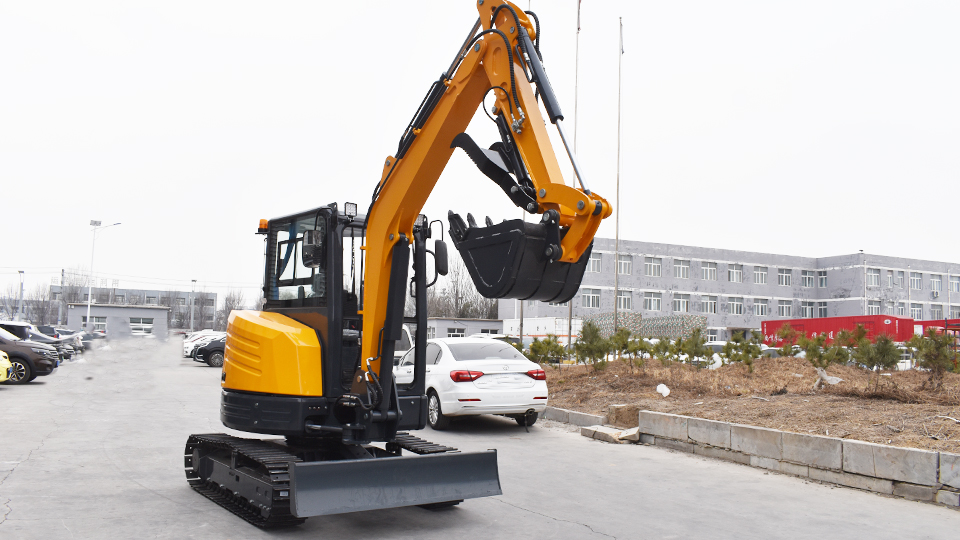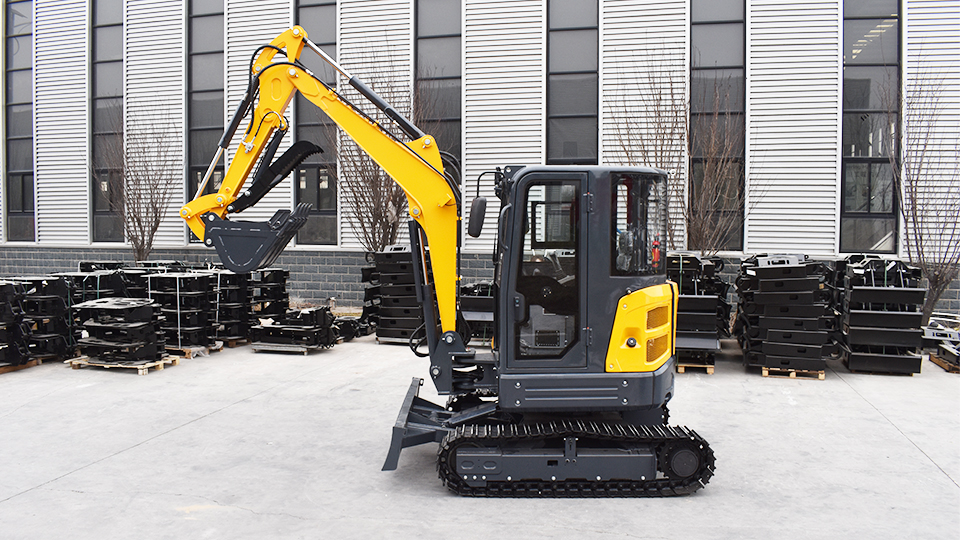Excavators, critical workhorses in construction, mining, and demolition, consume significant amounts of fuel. Given rising fuel costs and increasing environmental concerns, understanding how fuel consumption varies across different excavator models is crucial for optimizing operational efficiency and minimizing environmental impact. This article delves into the factors influencing fuel consumption in excavators and explores the variations observed between different models.
Factors Influencing Excavator Fuel Consumption:
Several factors contribute to the fuel consumption of an excavator:
Engine Size and Type:
Larger engines generally consume more fuel than smaller engines, as they require more energy to produce greater power.
Engine type (e.g., diesel, electric) also plays a significant role. Diesel engines are prevalent in excavators due to their high power output, but electric excavators are gaining traction due to their lower emissions and potential for reduced operating costs.
Engine efficiency, including technologies like turbocharging and common rail direct injection, significantly impacts fuel consumption.
Hydraulic System Efficiency:
The hydraulic system powers the excavator's movements. An efficient hydraulic system minimizes energy loss and reduces fuel consumption.
Hydraulic pump type, valve design, and hose routing affect system efficiency.
Load-sensing hydraulic systems, which adjust hydraulic flow based on demand, can significantly improve fuel efficiency.
Operating Conditions and Application:
The type of work being performed (e.g., digging, lifting, grading) and the operating environment (e.g., terrain, temperature) significantly impact fuel consumption.
Demanding applications, such as heavy digging in rocky terrain, require more power and result in higher fuel consumption.
Idle time also contributes to fuel consumption.
Excavator Size and Weight:
Larger and heavier excavators generally consume more fuel due to their greater power requirements.
The weight of the excavator and the load it is handling affect the engine's workload and fuel consumption.

Operator Skill and Techniques:
Operator skill plays a crucial role in fuel efficiency. Skilled operators can minimize unnecessary movements, optimize cycle times, and reduce idle time.
Proper maintenance, including regular filter changes and fluid checks, also contributes to fuel efficiency.
Technology and Features:
Advanced technologies, such as engine idle shutdown, automated digging modes, and telematics systems, can help optimize fuel consumption.
GPS and grade control systems can improve accuracy and reduce rework, leading to fuel savings.
Electronic engine controls, and variable speed fans can reduce fuel usage.
Fuel Quality:
Lower quality fuel will reduce engine efficiency, and increase fuel consumption.
Proper fuel filtration is also very important.
Fuel Consumption Variations Across Excavator Models:
Fuel consumption varies significantly across different excavator models, depending on their size, engine, and application. Here's a general overview:
Mini Excavators (1-6 tons):
Mini excavators are generally more fuel-efficient than larger models due to their smaller engines and lighter weight.
Fuel consumption typically ranges from 1 to 3 gallons per hour (GPH), depending on the model and operating conditions.
These are often used in landscaping, utility work, and confined spaces.
Compact Excavators (6-10 tons):
Compact excavators offer a balance of power and fuel efficiency.
Fuel consumption typically ranges from 3 to 5 GPH.
These are used in general construction, and light demolition.
Mid-Sized Excavators (10-30 tons):
Mid-sized excavators are widely used in construction and earthmoving applications.
Fuel consumption typically ranges from 5 to 10 GPH.
These machines are often used in roadwork, and larger scale trenching.
Large Excavators (30-50 tons):
Large excavators are designed for heavy-duty applications, such as mining and quarry work.
Fuel consumption can exceed 10 GPH, depending on the model and operating conditions.
These machines are used in mining, and heavy earth moving.
Very Large Excavators (50+ tons):
These machines are designed for the most extreme mining and heavy construction applications.
Fuel consumption can exceed 20+ GPH.
These machines are used in large scale mining, and large dam construction.
Technological Advancements for Fuel Efficiency:
Manufacturers are continually developing technologies to improve excavator fuel efficiency:
Engine Idle Shutdown: Automatically shuts down the engine after a period of inactivity, reducing idle fuel consumption.
Automated Digging Modes: Optimize hydraulic flow and engine speed for specific tasks, improving efficiency.
Telematics Systems: Provide real-time data on fuel consumption, operating parameters, and machine health, enabling operators and fleet managers to identify areas for improvement.

Electric Excavators: Electric excavators offer zero emissions and potentially lower operating costs, although their adoption is still limited.
Hybrid Excavators: Hybrid excavators combine diesel engines with electric motors to improve fuel efficiency and reduce emissions.
Improved Hydraulic Systems: Load sensing hydraulics, and more efficient hydraulic pumps, and valves.
Optimizing Fuel Consumption:
To minimize fuel consumption, operators and fleet managers can implement the following strategies:
Proper Machine Selection: Choose an excavator that is appropriately sized for the task.
Operator Training: Train operators on fuel-efficient operating techniques.
Regular Maintenance: Ensure regular maintenance, including filter changes and fluid checks.
Minimize Idle Time: Reduce idle time by shutting down the engine when not in use.
Optimize Cycle Times: Minimize unnecessary movements and optimize cycle times.
Utilize Technology: Leverage advanced technologies, such as telematics and automated digging modes.
Proper tire inflation: for wheeled excavators, proper tire inflation will reduce rolling resistance.
Proper track tension: For tracked excavators, proper track tension will reduce rolling resistance.
High quality fuel: using high quality fuel will increase engine efficiency.
Conclusion:
Fuel consumption in excavators varies significantly depending on the model, engine size, operating conditions, and operator skill. Manufacturers are continually developing technologies to improve fuel efficiency, and operators can implement various strategies to minimize fuel consumption. Understanding the factors influencing fuel consumption and implementing best practices are essential for optimizing operational efficiency, reducing costs, and minimizing environmental impact.
Post time:Sep-25-2020
